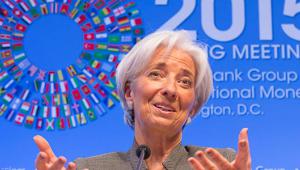The Washington-based lender warned of the risks of protectionism abroad and weaknesses in the Australian economy, predicting growth of 2.6% and 3.0% this year and next.
Its report, published yesterday, urged the government to be “cautious about the pace of budget repair”, which it said could be “very costly” in the light of fragile growth.
“Wage and price pressures have been weak, underemployment has risen, and private business investment outside of mining has been lacklustre,” the fund said.
Late last year, the Australian government was forced to ease up on its targets for deficit reduction as weak wage and profit growth hit the country’s revenues.
Meanwhile, high house prices and household debt, a slowdown in the country’s main trading partners and the rise of trade protectionism pose further risks to the economy.
While some of the IMF’s executive directors viewed Australia’s plans to repair its deficit as “prudent”, others thought the government should use the space it has to support weak demand, pursue reforms and increase infrastructure investment.
Australia said it will be “flexible” in its approach, which directors welcomed as well as suggesting the country develop contingency plans for if major risks arise.
But IMF staff, who conducted the analysis into Australia’s economy, warned that the plan relies on a rebalancing away from the domestic economy to Australia’s international economic interactions, which “may not be a desirable choice... at this juncture”.
A separate IMF report, also published yesterday, added that Australia’s fiscal plans had lost their credibility.
“While the postponement of fiscal consolidation may have been warranted on both economic stabilisation and sustainability grounds, the repeated underperformance against budget plans and the longer consolidation horizon has weakened the credibility of the fiscal framework,” it said.
It said this, combined with the “relatively rapid” increase in Australia’s debt-to-GDP ratios following the financial crisis and the high share of foreign debt financing, could have been a factor in rating agency Standard & Poor’s decision last year to qualify the rating of one of the world’s most credible borrowers.













